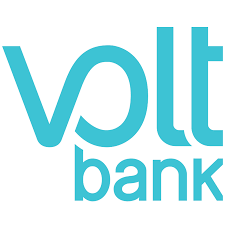
Start-up Volt Bank licence approval is confirmed by the Australian Prudential Regulation Authority (APRA giving it a head start over challenger rivals Xinja and 86 400.
And it ramps up pressure on the long established Big Four Australian lenders.

Access deeper industry intelligence
Experience unmatched clarity with a single platform that combines unique data, AI, and human expertise.
NAB, ANZ, Commonwealth Bank of Australia and Westpac’s combined market share is around 80% of the market.
APRA’s approval of the Volt Bank licence means that Australia has its first new bank for 40 years.
As a result of gaining its full licence Volt is now able to accept unrestricted deposits from the public.
Volt Bank’s current restricted licence restricts the neobank to holding total deposits of a maximum of A$2m.

US Tariffs are shifting - will you react or anticipate?
Don’t let policy changes catch you off guard. Stay proactive with real-time data and expert analysis.
By GlobalDataRival neobank 86 400 obtained a restricted licence last May.
Volt Bank licence – Xinja and 86 400 also seeking full licences
86 400 plans to launch to the public in early 2019 with a transaction account and a savings account.
Led by Anthony Thompson who co-founded the UK’s Metro Bank and Atom Bank, 86 400 is currently in Beta testing.
And a third neobank, Xinja, was granted a restricted banking licence last December.
Achieving a full licence ahead of the rollout of Open Banking later this year is critical for the challengers.
The regulatory landscape in Australia is driving competition. In February 2018, a new payments infrastructure known as the New Payments Platform was rolled out. This enables customers with accounts with different banks to make payments and transfer funds in real-time. It is available 24/7, 365 days a year.
Australia’s regulators are also lowering the bar for new players via much lower capital requirements. In particular, new entrants can seek a restricted licence with capital of A$3m against A$50m for a regular licence.
In September, Volt Bank founders Steven Weston and Luke Bunbury spoke with RBI.
Weston believes that what Volt offers “hasn’t been done anywhere else in the world, never mind Australia”.
He says that Volt is a journey manager, not a product manager. “We look to build all the tools and education the customer needs to get where they need to get rather than just offer a mortgage.”
Volt is implementing Temenos’ T24 Core Banking, Financial Crime Mitigation and Analytics software.
Temenos says its cloud technology will enable Volt to speed up the implementation of its consumer and business banking offerings.







